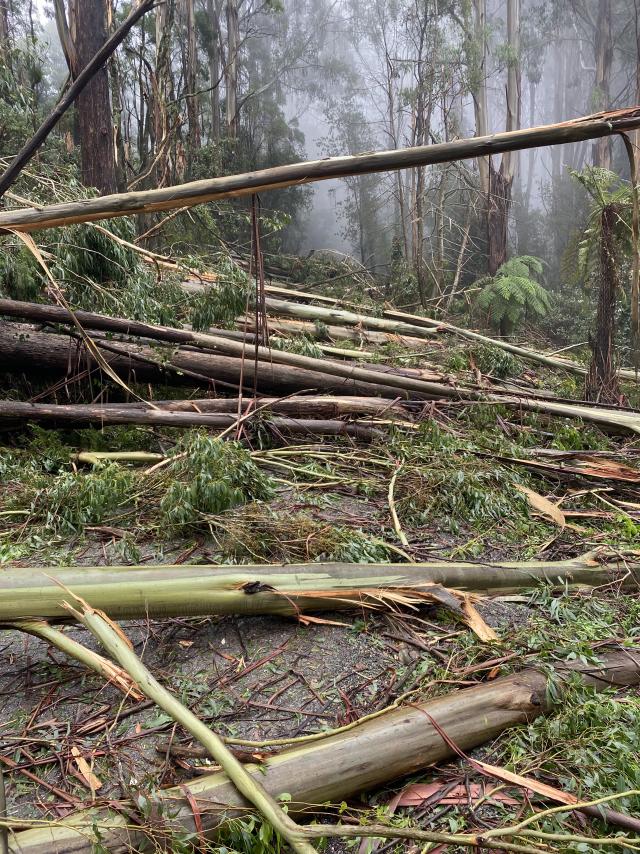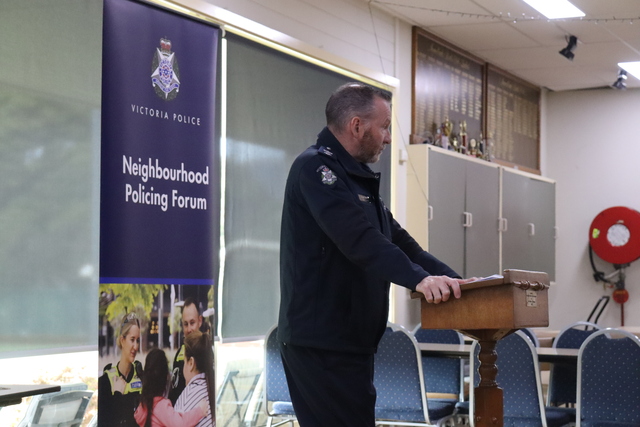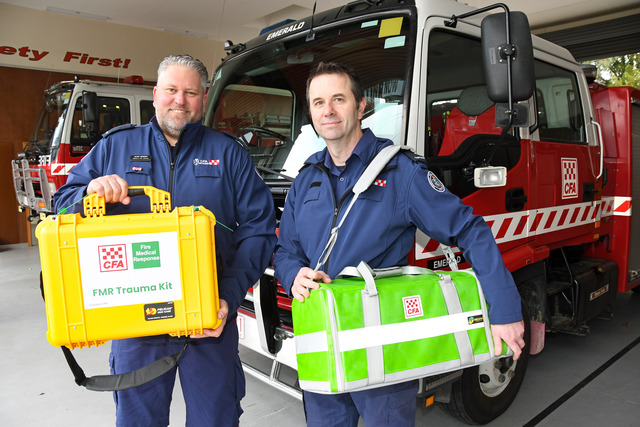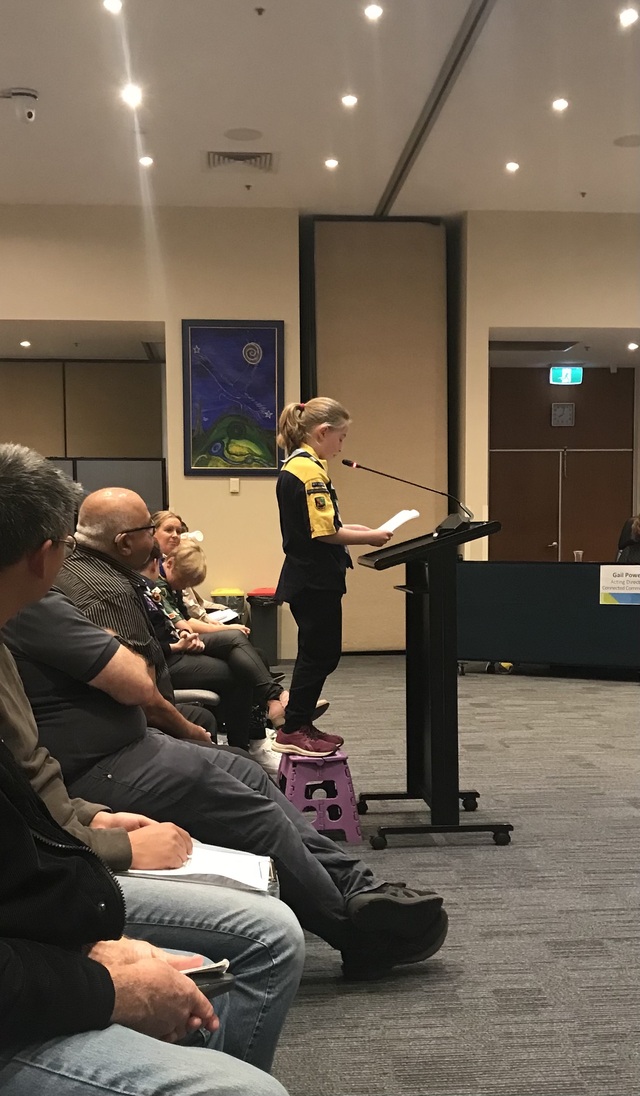For the second time, the Kalorama & Mt Dandenong CFA Brigade received a Community Award for the dedication of its members
On Saturday 10 December, Aaron Violi, Federal Member for Casey, presented the Casey Volunteer and Community Award for Brigade Members’ contributions to the community. Particular acknowledgement was given to efforts during and following a devastating wind storm in June 2021.
That storm arrived unannounced on the evening of 9th June. There followed nearly 15 hours of storm-force winds, cyclonic at times. Thousands of trees were blown across anything in their way; hundreds of houses were damaged or destroyed; power lines were down and roads had mature gum trees across them, often side by side. Telephone and NBN lines were ripped apart and severed gas mains added to the hazards.
Former Brigade captain Michael Motteram accepted the award on behalf of the Brigade. He explained that 5 aspects of the Brigades involvement were acknowledged, with the first being the risk of members’ lives at the time of the storm.
The second aspect involved the number of rescues and other emergencies that Members were involved in at the time.
Phone calls to 000 Emergency resulted in the Brigade being directed to 14 different addresses between 9.50pm and midnight on 9th June. Eleven of the 14 involved the need for help with rescues or damage to structures.
Brigade captain Bill Robinson and a small number of members worked throughout the night and into the next day. Others who could not get to the fire station to help went directly to incidents near their residences.
Some of the incidents are as follows:
At 10.09pm, members attended to a local resident who was on his decking when a large tree fell on him. It took 2 hours to extricate him and get him to the ambulance.
At 10.10pm, the Brigade was directed to a house that collapsed under the weight of a falling gum tree. Due to the number of fallen trees near the house, members had to traverse the last 200 metres on foot. This involved clambering over, around and under other fallen trees. Damage to the house was so severe that the uninjured resident was brought back to the fire station for the night.
Forty-seven minutes later, the Brigade was directed to the house beside the collapsed one they attended earlier. Arriving on foot again, Members encountered a large tree trunk in the middle of the house. The occupant was in a room on one side and he urgently needed tablets from a room on the other side. These were retrieved and the members left without the resident as he decided to stay where he was.
A little after midnight, members were directed to an injured person at a house some 3 kilometres from the fire station. Accessing was going to be difficult as roads were almost impassable by that time. In communications with others at the house, it was decided that the rescue could be delayed until daylight when other fire brigades could cut their way in to help. Regular contact was made with occupants to check on the condition of the injured occupant. Kalorama Members had committed to reach the address if the injured resident’s condition deteriorated.
Whilst these rescues were occurring, other trees were falling on houses near the fire station. Without power or roofs, residents deemed the houses to be uninhabitable. Accordingly, they started evacuating to the fire station as the generator-lit lights there acted as a beacon. Thirty-seven locals spent the remainder of the night there, but little sleep was had as Brigade members were coming and going constantly.
Other rescues occurred during the night with members often reaching the addresses on foot.
Throughout the next day, members attended another 22 emergencies.
In the days following, members provided meals for those unable to return to their homes.
Power outages occurred for approximately 2 months in some areas and the reliance on that utility soon became very evident. Some houses still relied on tank water and needed electricity to pump the water to the house. Other houses had septic tanks linked to toilets and needed electricity for processing. To cater for that need, the fire station became a collection/distribution point for generators. As well, firewood, food items, blankets, torches, battery chargers and more were supplied.
Mobile phones were the main means of communication, but they were useless without recharging facilities. These were provided too.
Community work for Brigade members continued for some time after a sense of ‘normality’ resumed. Work in homes and around the Brigade area kept members busy for a good part of the year.
This year, the Brigade has been to a number of community activities for the purpose of fostering community relations.







